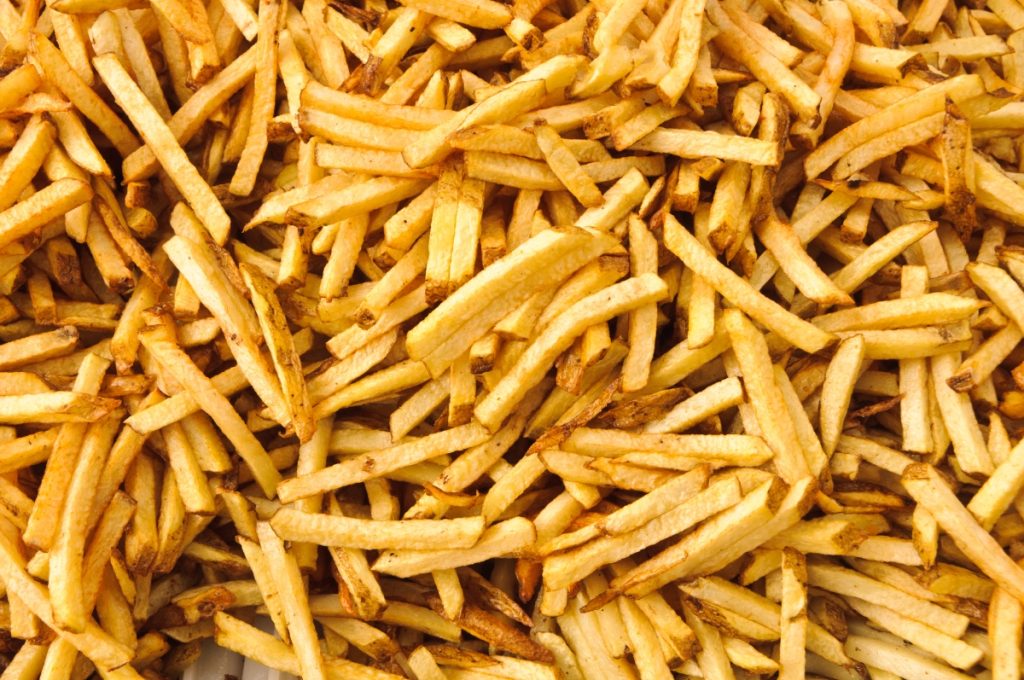Can Cortisol Make You Gain Weight and Belly Fat?
In our fast-paced world, stress is a constant companion. Its effects on our bodies, especially in weight gain, often go unnoticed. Cortisol, commonly known as the "stress hormone," has a significant role in this process.

Cortisol, a term often mentioned in health discussions, plays a complex role in our bodies. It helps us survive stressful situations and manages various bodily functions. Cortisol imbalances, particularly prolonged high levels, can contribute to weight gain, especially stubborn fat around the midsection.
Why does this happen? How does a hormone meant to help us cope with stress lead to weight gain? And what can we do about it? In this article, we will tackle these questions by exploring cortisol’s role in our body’s response to stress and how it leads to weight gain. We will also offer practical, evidence-based strategies to manage its impact.
Cortisol influences blood sugar, appetite, cravings, sleep, and metabolic rate. Understanding these effects reveals why managing cortisol levels is an important part of maintaining a healthy weight.
If you have been trying various diets but are still struggling with your weight, this article helps you understand this part of the puzzle.

What is Cortisol? The Biochemistry of Stress and Weight
Cortisol, often labeled as the “stress hormone,” is pivotal in our body’s response to stress. Its role is far more vital than this nickname suggests.
Cortisol is a steroid hormone made in the adrenal glands. The adrenal glands are located on top of our kidneys. This means cortisol is made from cholesterol, and influences metabolism and immune response.
Its production is regulated by the hypothalamus and pituitary gland in the brain. This forms part of the hypothalamic-pituitary-adrenal (HPA) axis — a central part of the body’s stress response system.
For example, the effects of cortisol include:
- Regulating circadian rhythm and sleep. Cortisol is normally highest in the morning and goes down throughout the day, reaching its lowest level at night.
- Increasing blood sugar
- Converting protein and fats into sugar, also increases blood lipids
- Interacting with other hormones, such as sex hormones and insulin
- Regulating immune function, mainly suppressing inflammation and certain other functions
Does Cortisol Cause Weight Gain and Belly Fat, and Why?
The short answer is yes.
While this article is for healthy people without any medication need, researchers have learned a lot about cortisol from people who take corticosteroid (synthetic cortisol/cortisone) medications.
These medications can be lifesaving in patients who need them, but they lead to weight gain, especially in the midsection. Side effects include hunger, blood sugar, insulin resistance, and more. This proves that high cortisol alone can lead to weight gain and belly fat.
However, if you’re not on steroid medications, the weight gain from natural stress-induced high cortisol would be much less than with the medications.
Cortisol makes you eat more, and stress-eat more. Studies have also compared people and animals that naturally produce varying levels of cortisol and have different stress responses depending on genetics and other factors.
In sheep, high cortisol responders are more likely to gain weight than low cortisol responders. Women who are high cortisol responders eat more in response to stress than low cortisol responders.

Why does high cortisol put more fat in the belly? Abdominal fat cells have more cortisol receptors than other fat cells in your body. It’s possible that these fat cells and visceral fat cells help break down the cortisol. Interestingly, though, visceral fat cells also produce cytokines which stimulate your stress response axis.
We don’t fully understand why your body does this, but stress management should 100% be part of your fat loss plan, especially if you want to lose midsection fat.
Now let’s dive into why and how stress-induced high cortisol in healthy people contributes to weight gain.
Cortisol Regulates Protein, Carb, and Fat Metabolism
When the body perceives stress, cortisol signals the liver to release stored glucose to provide immediate energy. This process, known as glycogenolysis, is part of the body’s fight-or-flight response. Cortisol also stimulates gluconeogenesis, or the production of glucose from other molecules. This ensures a continued supply of glucose that is vital for short-term survival responses, such as running from predators.
Cortisol facilitates the breakdown (catabolism) of fats and proteins into energy. This response is crucial in stressful situations where the body needs quick access to energy.
Chronic stress and prolonged cortisol elevation lead to muscle breakdown and an increase in fatty acid levels in the bloodstream. These fatty acids often end up being stored in the abdominal area. This process also contributes to visceral fat accumulation — the fat that surrounds your internal organs.
Keep in mind, however, that stress also increases catecholamine neurotransmitters and hormones such as adrenaline and noradrenaline. These hormones also increase blood sugar and perhaps jitters and anxiety associated with stressful situations more so than cortisol.
Cortisol Increases Blood Sugar
Under stress, cortisol increases blood sugar (glucose) to provide immediate energy for a ‘fight or flight’ response. While this is helpful in short bursts of stress, chronic stress means continuously high blood sugar levels. Over time, this leads to increased fat storage, especially around the abdomen.
If your body constantly perceives stress and cannot return to a rest and digest state after, these can all lead to elevated blood sugar.
Appetite and Cravings
Higher cortisol makes you hungrier. It stimulates the release of neuropeptide Y (NPY). NPY is a brain chemical that increases appetite, particularly for carbohydrates.
Cortisol affects the reward system in the brain, making high-calorie, high-fat, and sugary foods more appealing. This tendency leads to overeating and weight gain.
Poor Sleep and Circadian Rhythm
Cortisol normally peaks in the early morning and goes down throughout the day, reaching its lowest at night. It coordinates with all aspects of your physiology that run on a circadian rhythm.
Persistent stress can disrupt this natural rhythm. The body’s response to ongoing stressors leads to prolonged elevated cortisol levels. The continuous elevation can make you feel tired but wired.
Both stress and high cortisol can disrupt sleep, which in turn further increases cortisol and hunger through many hormones. For example, you’ll feel hungrier due to increased ghrelin. Overall, sleep deprivation and an unhealthy circadian rhythm tend to cause overeating, muscle loss, and fat gain.
Insulin, Thyroid, and Other Weight-Gain-Promoting Hormone Patterns
Cortisol doesn’t work by itself. Your stress response (HPA) axis interacts with other hormones, such as insulin, sex hormones, and thyroid hormone axes. Chronic high cortisol levels can increase blood sugar and reduce insulin sensitivity.
Chronic stress and prolonged high cortisol can also lead to pregnenolone steal, which tends to reduce progesterone before estrogen. This can cause estrogen dominance. Some practitioners, including Charles Poliquin, believe this increases fat in the hip and behind the arm region.
The stress response axis suppresses the thyroid axis at so many levels, although all the changes are reversible and in subclinical ranges where it’s considered normal. For example, high stress increases thyroid stimulating hormone (although without lowering T4). Cortisol may also increase the conversion of T3 (your active thyroid hormone) into rT3, which blocks thyroid hormone function.

All of these stress-related changes in thyroid hormones are not enough for the doctor to diagnose you with hypothyroidism, but they may contribute to gradual weight gain along with other changes in your body. However, many people with other risk factors for autoimmune hypothyroidism tend to have a flare and get diagnosed around periods of intense stress.
Slows Metabolism or Reduced Thermogenesis
Aside from making you eat more, having higher cortisol may reduce calorie expenditure in response to eating. This can be worse in the context of overeating.
Usually, eating burns some calories to digest and assimilate the food, and caloric surplus makes your metabolism adapt by burning more calories to some extent. It appears that the natural tendency to produce cortisol may affect this adaptation.
In a sheep study that compared low and high cortisol responders, the high cortisol responders gained more fat than low cortisol responders (40.5 ± 0.7 vs 35.8 ± 1.4%) after high-energy feeding. In response to the feeding, the low responders had higher physical temperature increased by an average of 0.8 degrees Celsius than the high responders.
The study concluded that if the result applies to humans, each person’s natural tendency to have a high or low cortisol response to stress may determine how likely someone is to get fat from overeating [R13].
Aside from potentially lowering post-meal calorie burn and thyroid function, cortisol may also reduce mitochondrial uncoupling . Mitochondrial uncoupling is when the mitochondria use ATP to generate heat instead of other purposes. This burns extra calories and may help with weight loss. However, researchers are still finding out to what extent stress reduces mitochondrial uncoupling, and the magnitude of its effect on our waistline.
How to Reduce Cortisol Belly Fat and Weight Gain
Understanding the impact of cortisol on weight gain is half the battle. The next step is implementing strategies to manage and reduce cortisol levels. This is crucial especially if you’re a high cortisol responder or struggle with belly fat. Let’s explore practical methods to help you regain control over your stress and its physical consequences.
1. Manage Your Stress Exposures
It’s time to identify major stressors in your life, such as stressful jobs, relationships, commutes, or situations. Then you’ll have to figure out how to manage or reduce these in ways that are practical to you. Setting boundaries, learning to say no, and working on traumas with qualified mental health professionals will also be very helpful.
2. Get Enough Sleep and Maximize Your Sleep Quality
Sleep is indispensable for managing your body composition, especially belly fat. Aside from setting aside time to sleep, these two articles cover how to maximize your sleep quality and remove sleep disruptors.
Importantly:
- Limit napping: If you take naps, limit them to 20-30 minutes and more than 10 hours before your bedtime, as it interferes with nighttime sleep.
- Ask your doctor about getting screened and treated for sleep disorders: Sleep disorders are comorbid with elevated cortisol and belly fat, among numerous other metabolic issues. Unfortunately, only 1 in 50 patients with obstructive sleep apnea are diagnosed and treated .
- If you have ongoing trouble sleeping or daytime fatigue, consult a healthcare provider. Conditions like insomnia and sleep apnea significantly impact sleep quality.
It’s important to recognize that sleep needs are individual, and what works for one person may not work for another. If possible, track with a wearable like Oura Ring as you try different strategies to improve your sleep.

3. Work on a Healthy Circadian Rhythm
Your body relies on many external cues to anchor its circadian rhythm. These include light, darkness, physical activity, timing of food, and timing of stressful activities like work.
Without natural outside cues, your body tends towards a slightly longer (25 h) circadian cycle. This is why people who don’t get sunlight and are exposed to a lot of artificial light at night tend to call themselves night owls. It’s very unhealthy and can promote weight gain.
The most important solution to this is to get sun or equally bright light exposure in the morning and sleep in darkness. This article provides you with various tips to optimize your circadian rhythm.
4. Exercise Without Raising Your Cortisol Too Much
All intense physical activities increase cortisol but also make you more stress-resilient and help you cope with stress. You want to avoid overdoing it.
First, stop relying on exercise as a way to burn calories because exercise alone is not a reliable way to burn extra calories or lose weight in the long term. Exercise tends to also make people eat more, so it’s crucial to watch your overall caloric intake if you want to lose fat.
Instead, exercise because you enjoy it and use it as stimuli for the intended responses, such as building or maintaining muscles. Whereas, yoga may also improve flexibility and overall stress reserve.
Both exercise intensity and duration affect cortisol levels. So, there is no literature that supports the 45-minute time limit for each exercise session. The key is listening to your body. For example, if you feel burned out and constantly tired, ultra-endurance events might be too much for you.
You want to balance training and recovery by finding the exercise intensity, frequency, and duration that works best for you. For example, you should finish each exercise session feeling better, not worse, than when you started. If you feel extra tired, run down, and sore, dial down the intensity or go for active recovery (such as walking) instead.
5. Reduce or Minimize Stimulant Use
Caffeine and many other stimulants increase cortisol and blood sugar. As you improve your sleep, it’s a good idea to taper off your stimulant intake.
6. Be Careful With Hormetic Biohacks
Many biohacks work as hormesis–the small amount of stressor that makes you stronger. For example:
- Fasting and caloric restriction
- Cold exposure
- Heat exposure
- Keto-adaptations
We’re biohackers and biohacking advocates. However, these are stressors to your body, and for some people, it is too much. It doesn’t mean you can’t do these, but you may need to dial down the intensity and dose.
A good way to know is to use heart rate variability (HRV), as measured by a heart rate strap or wearable such as the Oura ring. If your HRV seems to crash with these hormesis, it’s time to reduce the intensity or stop.

7. Work on Stress Management Routines and Techniques That Work for You
The key is to explore these methods and do them consistently. For example:
- Progressive Muscle Relaxation (PMR): PMR involves tensing and then relaxing different muscle groups in the body. This practice reduces stress and anxiousness by inducing a state of physical relaxation, which in turn lowers cortisol levels.
- Deep Breathing Exercises: Use techniques like diaphragmatic breathing to calm the nervous system.
- Cognitive Behavioral Therapy (CBT): CBT is a form of psychotherapy that helps individuals manage stress by changing negative patterns of thought and behavior. It is effective in reducing symptoms of stress, thereby lowering cortisol levels.
- Nature Exposure and Green Spaces: Spending time in nature, or even viewing scenes of nature, reduces anger, fear, and stress, and increases pleasant feelings. According to 52 studies, it reduces cortisol and stress perception.
- Mindful Eating: Mindful eating is the practice of paying full attention to the experience of eating and drinking. Take time to notice the colors, smells, textures, flavors, temperatures, and even the sounds of your food. This practice reduces stress-related eating and may help in managing cortisol levels.
- Gratitude Journaling: Writing down things for which you’re grateful increases well-being and life satisfaction. This reduces stress and may help in lowering cortisol levels.
8. Use Supplements to Support Your Stress Response
The following supplements may help with managing cortisol in combination with other lifestyle adjustments and stress management.
- Magnesium: Magnesium helps with cortisol clearance and mitigates many negative health effects of stress in the body. It also promotes blood sugar control and helps with reducing belly fat in combination with diet and exercise.
- Omega-3 Fatty Acids: Omega-3s, particularly EPA and DHA found in fish oil, help support a healthy inflammatory response and lower cortisol levels.
- Vitamin C: Vitamin C can reduce cortisol and improve the body’s response to stress. It can be taken as a supplement or increased through dietary sources like citrus fruits, berries, and bell peppers.
- Phosphatidylserine: Phosphatidylserine is a phospholipid that helps lower cortisol levels, particularly when stress is exercise-induced.
- Adaptogenic Herbs: There are various adaptogens out there. The key is to choose the ones that are appropriate for you.
- L-Theanine: In green tea, L-Theanine promotes relaxation without drowsiness. It also modulates the stress response.
- B-Complex Vitamins: B vitamins play a role in energy production and stress management. A B-complex supplement ensures adequate intake of these essential nutrients.
Weight loss, especially stubborn fat, can be very tricky. While you need a caloric deficit to lose weight, lifestyle factors like stress and sleep also play major roles. To learn more about all the contributing factors and achieve your health goals for life, check out The Ultimate Nutrition Bible.
- Hannibal KE, Bishop MD. Chronic stress, cortisol dysfunction, and pain: A psychoneuroendocrine rationale for stress management in pain rehabilitation. Phys Ther. 2014;94(12):1816-1825. doi:10.2522/ptj.20130597
- Yasir M, Goyal A, Sonthalia S. Corticosteroid Adverse Effects. StatPearls Publishing; 2023.
- Hewagalamulage SD, Lee TK, Clarke IJ, Henry BA. Stress, cortisol, and obesity: a role for cortisol responsiveness in identifying individuals prone to obesity. Domest Anim Endocrinol. 2016;56:S112-S120. doi:10.1016/j.domaniend.2016.03.004
- Drapeau V, Therrien F, Richard D, Tremblay A. Is visceral obesity a physiological adaptation to stress? Panminerva Med. 2003;45(3).
- Moyer AE, Rodin J, Grilo CM, Cummings N, Larson LM, Rebuffé-Scrive M. Stress‐induced cortisol response and fat distribution in women. Obes Res. 1994;2(3):255-262. doi:10.1002/j.1550-8528.1994.tb00055.x
- Ans AH, Anjum I, Satija V, et al. Neurohormonal regulation of appetite and its relationship with stress: A mini literature review. Cureus. 2018;10(7). doi:10.7759/cureus.3032
- Hirotsu C, Tufik S, Andersen ML. Interactions between sleep, stress, and metabolism: From physiological to pathological conditions. Sleep Sci. 2015;8(3):143-152. doi:10.1016/j.slsci.2015.09.002
- Schmid SM, Hallschmid M, Jauch-chara K, Born J, Schultes B. A single night of sleep deprivation increases ghrelin levels and feelings of hunger in normal‐weight healthy men. J Sleep Res. 2008;17(3):331-334. doi:10.1111/j.1365-2869.2008.00662.x
- Adam TC, Hasson RE, Ventura EE, et al. Cortisol is negatively associated with insulin sensitivity in overweight Latino youth. J Clin Endocrinol Metab. 2010;95(10):4729-4735. doi:10.1210/jc.2010-0322
- Wellwood C, Rardin S. Adrenal and thyroid supplementation outperforms nutritional supplementation and medications for autoimmune thyroiditis. Integrative Medicine: A Clinician’s Journal. 2014;13(3):41.
- Helmreich DL, Parfitt DB, Lu XY, Akil H, Watson SJ. Relation between the hypothalamic-pituitary-thyroid (HPT) axis and the hypothalamic-pituitary-adrenal (HPA) axis during repeated stress. Neuroendocrinology. 2005;81(3):183-192. doi:10.1159/000087001
- Mizokami T, Wu Li A, El-Kaissi S, Wall JR. Stress and thyroid autoimmunity. Thyroid. 2004;14(12):1047-1055. doi:10.1089/thy.2004.14.1047
- Lee TK, Clarke IJ, John JS, et al. High cortisol responses identify propensity for obesity that is linked to thermogenesis in skeletal muscle. FASEB J. 2014;28(1):35-44. doi:10.1096/fj.13-238345
- Luijten IHN, Cannon B, Nedergaard J. Glucocorticoids and Brown Adipose Tissue: Do glucocorticoids really inhibit thermogenesis? Mol Aspects Med. 2019;68:42-59. doi:10.1016/j.mam.2019.07.002
- Pillar G, Shehadeh N. Abdominal fat and sleep apnea. Diabetes Care. 2008;31(Supplement_2):S303-S309. doi:10.2337/dc08-s272
- Ye L, Li W, Willis DG. Facilitators and barriers to getting obstructive sleep apnea diagnosed: perspectives from patients and their partners. J Clin Sleep Med. 2022;18(3):835-841. doi:10.5664/jcsm.9738
- Circadiansleepdisorders.org. Accessed January 26, 2024. https://www.circadiansleepdisorders.org/info/cycle_length.php
- Chaput JP, McHill AW, Cox RC, et al. The role of insufficient sleep and circadian misalignment in obesity. Nat Rev Endocrinol. 2023;19(2):82-97. doi:10.1038/s41574-022-00747-7
- Caplin A, Chen FS, Beauchamp MR, Puterman E. The effects of exercise intensity on the cortisol response to a subsequent acute psychosocial stressor. Psychoneuroendocrinology. 2021;131(105336):105336. doi:10.1016/j.psyneuen.2021.105336
- Lovallo WR, Whitsett TL, al’Absi M, Sung BH, Vincent AS, Wilson MF. Caffeine stimulation of cortisol secretion across the waking hours in relation to caffeine intake levels. Psychosom Med. 2005;67(5):734-739. doi:10.1097/01.psy.0000181270.20036.06
- Jimenez MP, DeVille NV, Elliott EG, et al. Associations between nature exposure and health: A review of the evidence. Int J Environ Res Public Health. 2021;18(9):4790. doi:10.3390/ijerph18094790
- Cuciureanu MD, Vink R. Magnesium and Stress. University of Adelaide Press; 2011.
- Madison AA, Belury MA, Andridge R, et al. Omega-3 supplementation and stress reactivity of cellular aging biomarkers: an ancillary substudy of a randomized, controlled trial in midlife adults. Mol Psychiatry. 2021;26(7):3034-3042. doi:10.1038/s41380-021-01077-2
- Peters EM, Anderson R, Nieman DC, Fickl H, Jogessar V. Vitamin C supplementation attenuates the increases in circulating cortisol, adrenaline and anti-inflammatory polypeptides following ultramarathon running. Int J Sports Med. 2001;22(7):537-543. doi:10.1055/s-2001-17610
- Starks MA, Starks SL, Kingsley M, Purpura M, Jäger R. The effects of phosphatidylserine on endocrine response to moderate intensity exercise. J Int Soc Sports Nutr. 2008;5(1):11. doi:10.1186/1550-2783-5-11






